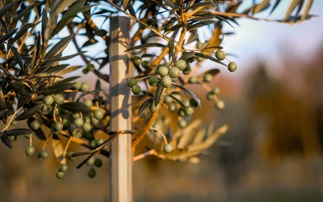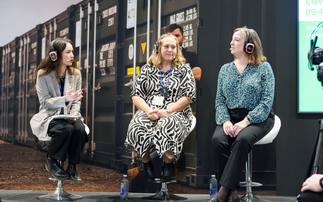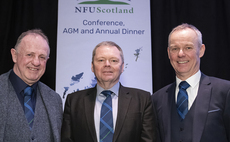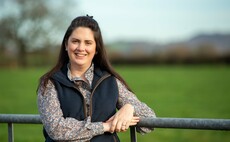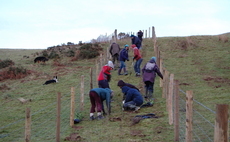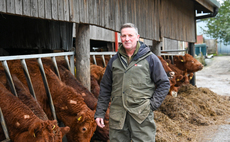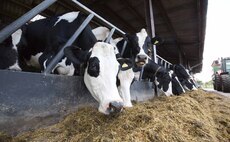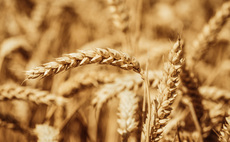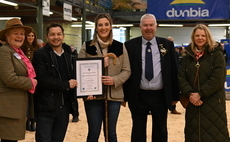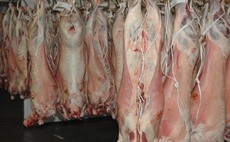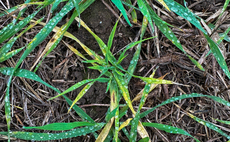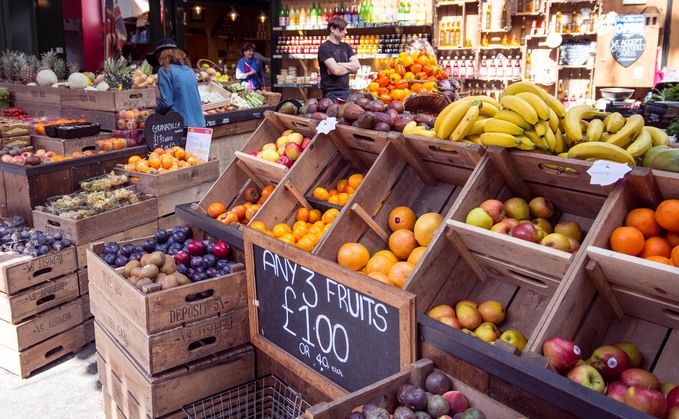
A farm shop might provide a nice day out for some members of the public, but the Farm Retail Association's new campaign, More Than Food, aims to showcase that farm shops deliver so much more.
Created to champion British farm shops and farmers' markets, More Than Food hopes to raise public awareness that farm businesses are a vital part of the UK's food system and the economy, said Farm Retail Association chief executive Emma Mosey.
Focusing on freshness and health, economic contribution and sustainability, the campaign comes at a time when national health and farming are under the spotlight and hopes to showcase the link between fresh, local food and consumer well-being, while making it clear that farm shops are a cornerstone of rural communities when it comes to employment.
For every £1 spent in a farm shop, an estimated 75p stays within the local economy, supporting farmers and creating rural jobs, said Ms Mosey.
But this is also about breaking down barriers and misconceptions, one of which is price, and another is ease of access.
"Farm shops often have higher prices than supermarkets due to their smaller scale and lack of bulk-buying power. Customers may not see the inherent value in the quality and freshness of the product, or the social and environmental benefits of buying local.
"Additionally, for many people, the convenience of a one-stop-shop supermarket is a major factor. Farm shops may require a separate trip and may not stock everything a person needs for a full weekly shop, making them seem less convenient," said Ms Mosey.
Businesses must also think about their marketing and ‘focus on education and storytelling'.
Public
Allowing consumers to understand the story behind their food and giving them the chance to know the farmers and producers will hopefully encourage change and build trust.
This is how, said Ms Mosey, food becomes more than just a commodity.
She said: "It is also essential to go beyond simply saying ‘buy local' and instead explain why it matters. This includes showcasing the direct health benefits of fresh, unprocessed food and illustrating how supporting local farms contributes to a resilient food system and a healthier planet.
Current political pressures are also going to impact consumers, from global geo-political worries to food inflation prices, which could, she said, lead to a decline in investment, innovation and ultimately, domestic food security.
With a feeling of such disconnect between Government and the agricultural industry, urging shoppers to go direct to farms could help to alleviate some of the problems, by choosing to support businesses that employ a hug amount of people while giving back environmentally.
"For farm businesses already facing tight margins and labour shortages, this is an added financial burden. It can make it harder for them to hire the people needed for tasks like harvesting and food processing, which in turn impacts food production and the rural economy," said Ms Mosey.
National health
TV presenter, chef and Farm Retail Association patron Hugh Fearnley-Whittingstall is supporting the campaign and hopes it will help fuel people's desire to reconnect with their food, for the sake of health and the future of rural businesses.
READ NOW: OPINION: Why is the focus on cutting out meat when it should be on eliminating ultra processed foods?
He said: "Part of the issue is that there is a genuine health crisis – we are getting far too sick, far too young with diet related diseases and that is because of the food culture.
"The way we eat is not right, and reconnecting with fresh ingredients in our kitchens is huge part of addressing this."

Changing eating and shopping habits is a shift we have to make culturally, he said, and he urges people to question how much of their weekly shop could they realistically do more locally?
And it is more than just buying food. This is about putting what we eat and those who make back at the heart of communities, creating a social space and an opportunity for ‘connection' for a society who is always on-the-go.
"It is a game changer because it is great for farmers who are being amazingly entrepreneurial by adding value and retail elements to their business – they are not doing it just for fun, they believe in their produce and it is part of their business plan," said Mr Fearnley-Whittingstall.
"They need our support because it is a two-way thing – they help us eat better food and we can help them survive into the next generation and that is a positive transaction.
"It is not a fanciful idea, and I genuinely believe this makes a difference to people's lives.
"And price is a perception - the whole point is to cut out the middleman and sell direct.
"When it comes to meat and dairy, if the standards of the animal welfare are higher the cost will be higher, but that is a good place to put that extra bit of money – it feeds you better and you will get more out of it.
"Going to a farm shop is not harder than going to the supermarket and might make you feel better, so give it a go and see what kind of positivity it brings."
He believes that there also needs to be an acknowledgement from Government that the way we are eating is not right, and that if we do not act, the next generation will not know ‘what good food looks like' and this country's health issues will only increase.
This, he said, is not acceptable.
Education plays a key part, and although this needs to take place in schools, farm shops are also an education in themselves.
The future of farming, though, is positive, and although he said current pressures cannot be ignored, this campaign is trying to create a buzz around local food produced by local people, which will hopefully support the ‘economic structure that keeps farms alive'.
"I do not think anyone wants to see our farms swallowed up into huge agricultural conglomerates," he said.
"We want that sense of people and the farming families that have supported the community with produce for generations; people want a good story.
"The minute you are able to tell positive stories about the way you farm and couple that with retail opportunities, these dots are able to be connected in really amazing ways."








